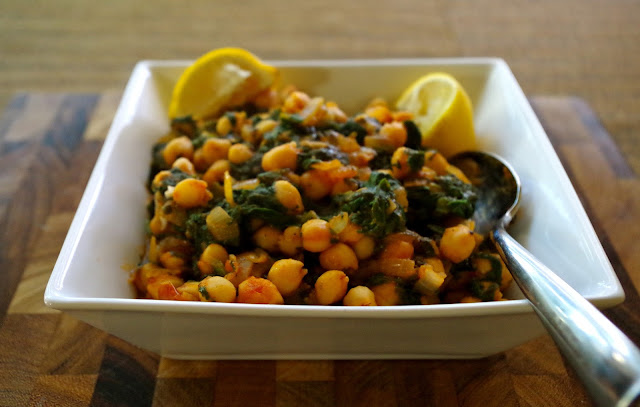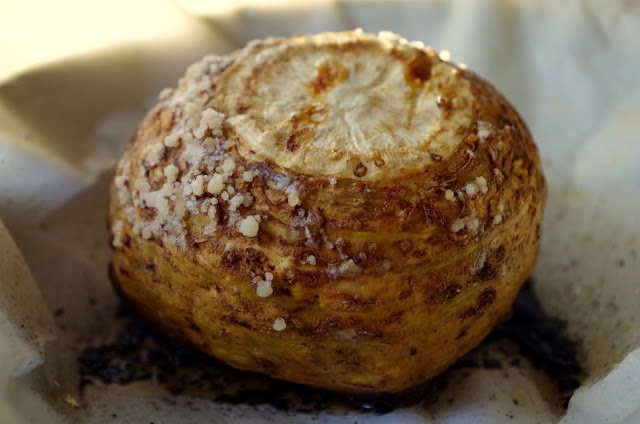Banana Tonic Smoothie
I have some issues with all the hype around smoothies. Some people out there suggest that the smoothie is what will cure the nutritional ails of the 21st century. Such is the case with my latest in smoothie cookbooks, Green Smoothies, by improbably named Fern Green, a food stylist who apparently writes cookbooks while managing a boutique hotel in central Italy. According to this cookbook, the smoothie will cleanse and detox the body, provide alkaline and acidic balance, and help prevent disease. It will replace your caffeine fix (what!?), benefit kids who don't like veggies, give you energy, and purify the blood. That's a lot of promise in a jar.
My love of the smoothie almost guarantees that I have one almost every weekday for breakfast. Portable and easily made the night before, most of my smoothies taste remarkably the same, given that I hardly vary my recipe: yogurt, fruit, spinach, flax seed, and maybe celery. They're fast. They're easy. They're definitely no-brainers.
But, man, they get boring.
So enter in a new smoothie book, and I am happy.
This little recipe book on juices and smoothies is well presented with photographs of the whole foods on the left page and a bottle of the macerated and liquified stuff on the right. Lovely enough. Yet, the book smacks of the juicing, de-toxing craze that I have a hard time getting fully behind. Green gives a 7-day juice detox plan that looks, well, uncomfortable and nigh starvation. And with every recipe there is a snazzy little graphic that purports this smoothie is "detoxifying," "body stimulating" (!?), "blood nourishing," "brain powering," or even "fat flushing" without ever explaining what that means (again, what is "body stimulating"--will I start to tingle?) or how she draws these conclusions.
I started with a Banana Tonic Smoothie, which is supposed to be a "blood nourishing" and "anti-inflammatory" "diuretic."
- A quick Google search leads me to find that romaine is a diuretic.
- The best I can do for "blood nourishing" is this article from the San Francisco Chronicle, which at least gives a slew of reasons for finding foods high in B-12 (supports red blood cell function), vitamins A and D (white blood cell support), vitamin K (platelet production), protein (hemoglobin and antibodies). Bananas, while high in B-6, manganese, vitamin C, and potassium, don't really fall in that category. Romaine is high in vitamin K and A as well as folate, so once again I think the romaine is picking up the slack.
- And for the anti-inflammatory claim, Web MD (site of every diagnosis for death I have given myself in the past five years) merely states that a diet rich in fruits and vegetables is one way to begin an anti-inflammatory diet.
However, that said, I do like the little book as it is fodder for a slew of new morning smoothies or juices--and even her juices look like they would make some dynamite smoothies, so I am seeing both sections of the book as one in the same. I suspect with Green's prodding, I will be adding bok choy, fennel, and broccoli to my morning repertoire. I certainly added romaine with this first featured smoothie, Banana Tonic, a leafy green I don't normally throw in a blender with a banana.
So maybe more of my smoothies will be delightfully green, and perhaps the range of smoothie ingredients will grow around these here parts. But I am still in the dark about what it means to have a body-stimulating smoothie. I'll be over here, confused, probably with some caffeine.
-------------
Banana Tonic Smoothie
Adapted from Green Smoothies
Yield:
1 smoothie
Ingredients:
1 small head of romaine lettuce
2 bananas
1 handful of mint leaves
2 bananas
1 handful of mint leaves
Instructions:
1. Blend the ingredients with 1/3-1/2 cup of water. Add more water if necessary to reach your desired consistency; then drink.












Comments
Post a Comment